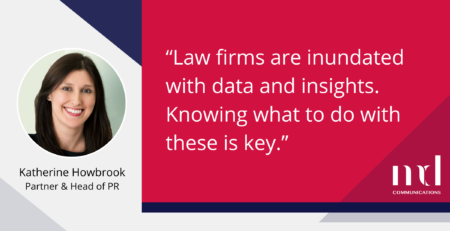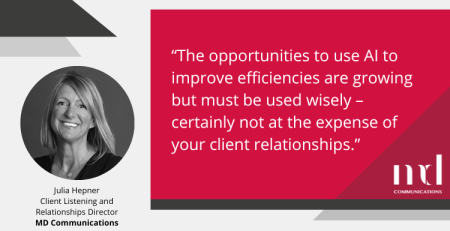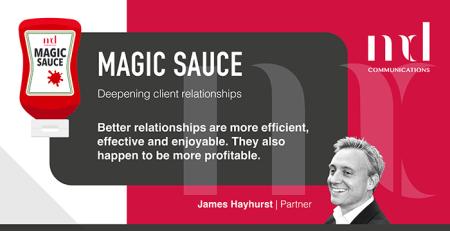Partner and Head of Directories Linsay Leslie delves into the psychology behind clients’ buying decisions.
Earlier this summer I spoke at an Alliott Global Alliance conference on the topic of improving your tender and pitch win rate. In addition to the importance of robust processes such as ‘bid/no bid’ criteria and early capture planning, we focused on the impact that brand awareness and mental availability has on clients’ purchasing decisions.
Why do clients buy?
Professional services firms often focus their pitch and proposition on their technical capability and experience to deliver the work, without understanding what is driving the client’s need to buy and their buying behaviour.
To understand why and how clients buy, we look at the stages and features of the buying or selection process.
The stages and features of purchasing
Key features of the selection process are qualification, selection and risk.
Qualification is easy to understand – the client needs evidence and certainty that you have the technical capability, experience, skills and resource to do the job. Following this, the selection stage is where the real differentiators come into play.
’10 firms have the qualification, experience and skills to do the work, so which one do I pick?’
There is real risk here for the purchaser. A lot of firms will look very similar on paper and in terms of their financial proposal, but for the client there is more at stake than price.
‘How will appointing firm X make me look to my internal stakeholders? Which team will have my back and understand the pressures I’m under? How do I mitigate the risk of selecting the wrong firm?’
What clients need from the relationship with their adviser will differ from organisation to organisation and even individual to individual. Gaining this knowledge will help you to develop a winning proposition that presents your firm as a low-risk choice.
The impact of brand awareness
Building brand awareness and ensuring the firm is visible and mentally available will help potential clients understand who you are as a firm, your purpose and values, and the connection with their organisation. If the buyer doesn’t know and understand your brand, it makes you a riskier choice.
Understanding what the market really understands of your firm is vital. Undertaking external conversations with clients as well as intermediaries and referrers of work will give you an unbiased and true picture of what the market really understands of your brand and what you do that the market truly values. Hint, it often doesn’t match internal perceptions.
Mental availability
‘Mental availability’ also plays a part in why clients select a particular firm. We have touched on the importance of brand awareness and being visible in the market, in addition to this you also need to be ‘available’.
But what does being available mean and how does it impact on winning bids and pitching? Regular touch points and building an ongoing relationship with target clients will help put you at the front of their minds when they are considering who they want to work with.
In sectors like defence, health and construction where organisations can live and die by the contracts they win or lose, there is a much more established and strategic approach to building relationships well in advance of the bid. A practical step is to develop a client relationship programme, incorporating client satisfaction surveys and feedback interview – get in touch if you would like advice on how to set up a successful programme.
Takeaways
By delving deeper into the client needs and reading between the lines of the tender requirements and specification, firms can truly understand the key drivers behind a tender and what a trusted advisor will look like to this client. This is about how you demonstrate that you will have their back, and add real value.
Price, reputation, technical capability, commercial acumen, experience, and market knowledge will all be key factors in winning work, whether a detailed tendering process or informal pitch. However, underpinning this, people buy people and want to work with people and brands they trust.
For more details or a further discussion about how you can win more work, and for advice on how to develop and grow your brand, email linsay.leslie@mdcomms.co.uk.












